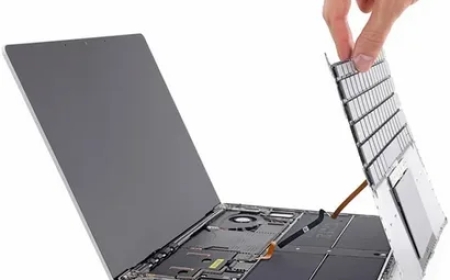AI-Driven Financial Tools and Real Estate Investment
Whether I’m reviewing a potential deal, skimming through data dashboards, or just unwinding with a disposable e-cig, I know I’ve got the tools—and mindset—to make the next move count.
Ive always loved watching how technology evolves. Whether its the way we work, communicate, or even chill with a smooth pull from my favorite disposable e-cig, tech has a way of quietly shifting our routines until theyre completely transformed. And now, that transformation is hitting something Ive had my eye on for years: real estate investing.
Artificial Intelligenceyes, that AI everyone keeps talking aboutis no longer just buzz. Its become one of the most powerful tools in finance and property markets. From analyzing property values to flagging fraud in mortgage applications, AI is taking what used to be guesswork and turning it into precision. And as someone who likes having a bit more confidence in where Im putting my money, Im here for it.
So lets unpack this using the PAS (Problem-Agitate-Solution) framework: why AI is becoming the go-to for investors like me, what challenges its creating, and how Im personally tapping into it to make better real estate calls.
? The Problem: Too Much Data, Not Enough Clarity
Before AI, trying to analyze real estate was like trying to find the best vape flavor from a wall of vape juice optionsoverwhelming and a little hit-or-miss.
Youve got dozens of factors to look at:
-
Neighborhood trends
-
Rental yields
-
Historical prices
-
Future infrastructure plans
-
Crime stats
-
Market saturation
Even with spreadsheets and endless browser tabs, it was still mostly about gut feeling. That I think this area is up-and-coming moment.
But as the market became more competitive, that kind of guesswork stopped cutting it. Everyonefrom first-timers to major firmsneeded an edge. And thats when AI started stepping in.
? The Agitation: Smarter Tools Mean Higher Stakes
AI didnt just make investing easierit made it faster, more precise, and more competitive. And thats both a blessing and a complication.
? Predictive Analytics Are Leveling the Field
I recently tried out an AI-powered platform that scans thousands of property listings in real-time, ranking them based on expected ROI, occupancy trends, and even microeconomic forecasts. It blew my mind.
-
No more spreadsheet rabbit holes
-
No more second-guessing local school district stats
-
Just clean, prioritized data
But heres the catch: everyone else is using those tools now too.
-
If a property looks great on paper, its likely flagged by dozens of other buyers dashboards
-
Bidding wars can start before I even finish my coffee
-
AI doesnt just help youit helps your competition
?? Risk Assessment Is Smarter, But Still a Challenge
AI tools are now identifying risks I wouldve never spottedlike short-term market volatility based on tourism data or flood-zone shifts based on climate patterns.
And while that helps me avoid disasters, its also exposed just how fragile some safe investments really are.
-
That duplex I loved in Miami? AI flagged rising sea-level risks and insurance volatility
-
A promising rental block in the Midwest? Predictive rent plateau in 3 years
I appreciate the insights, but its also kind of intense. The more you know, the harder it is to move casually.
? Fraud Detection = Safer Lending
AI is also helping banks and lenders flag unusual activityidentity fraud, forged documents, inflated appraisals.
Thats good news for long-term market stability. But it also means:
-
More paperwork scrutiny
-
Longer approval timelines
-
Less tolerance for creative financing hacks
Even I had to adjust how I prepare my documents because AI is catching stuff that used to fly under the radar.
? The Solution: Adapt, Dont Resist
Instead of feeling overwhelmed, Ive started leaning into AI. Not blindly, but with a curious and strategic mindset. Heres how Im making the most of it:
1. Using AI Tools to Find Hidden Gems
I subscribe to two platforms right now that use machine learning to find underpriced or miscategorized listings. Ive already found:
-
A small multifamily in a college town that wasnt even ranking in search filters
-
A new build in a low-demand neighborhood flagged for an upcoming infrastructure project
These tools scan patterns and data points Id never catch alone. They do the heavy lifting, so I can move faster with more confidence.
2. Combining AI with Local Knowledge
AI can crunch the numbers, but it cant walk the block. Thats still on me.
-
I use AI tools to shortlist properties
-
Then I go old-school: visit the area, talk to locals, get a feel
That combo is unbeatable. Its like high-speed scouting with a personal touch.
3. Letting AI Handle What It Does Best
Theres no point fighting what machines do better. So I let AI own:
-
Risk modeling
-
Comparative price analyses
-
ROI forecasting
That frees me up to focus on the human side of investingrelationships with brokers, renovation decisions, tenant experience, and timing.
?? My Personal Angle on AI and Real Estate
Im not some hedge fund guy with a team of analysts. Im just someone who wants smart, efficient tools to help me make informed decisionsand protect my investment long-term.
So I approach AI like I do my favorite tech: useful, but not magical. It enhances what I already do well. It doesnt replace my brainit boosts it.
And honestly, theres something satisfying about seeing my instincts confirmed by the data. When a property I spotted gets an 85% score from my platform? Thats a good feeling.
?? The Balance Between Speed and Strategy
AI helps me move fast. But speed without thought is just chaos.
So Ive built some rules for myself:
-
Never skip the human check
-
Use AI to narrow, not to decide
-
Double-check the assumptions behind every prediction
That balancebetween the brain and the botis where the real power lies.
? Wrapping It Up: Welcome to Smart Investing
If youre still on the fence about using AI in your investment journey, I get it. Its new, its complex, and yeah, its kind of everywhere. But its also one of the most practical, empowering tools Ive added to my real estate toolkit in years.
Key Takeaways
-
AI is transforming real estate and finance by providing deeper, faster, and smarter analysis.
-
Predictive analytics help spot high-yield properties before the crowd.
-
Risk assessment tools identify hidden challengesclimate, market shifts, and more.
-
Increased competition in AI-flagged markets means faster moves and sharper strategy.
-
Smart investors are combining AI tools with personal research for best results.
For me, using AI isnt about keeping up with trends. Its about staying ahead of the curvewithout burning out. With the right tools, a bit of curiosity, and a solid investment plan, you dont just survive the AI waveyou ride it.
Brains, Bots, and the Future of Investing
As always, Im navigating all this with a sense of realism and a willingness to evolve. The markets changing, but that doesnt scare me. It excites me.
Whether Im reviewing a potential deal, skimming through data dashboards, or just unwinding with a disposable e-cig, I know Ive got the toolsand mindsetto make the next move count.
Heres to smarter, sharper investingAI and all.






































